The Coalminers Dodder no more.
When I agreed to go to the movies to see "Pride", I thought it'd be another PBS-style rendition of gays being liberated to celebrate their adulation of Judy Garland in public or praise for their stalwart stand against Dianne Feinstein's 'Fascist' attempt to shut down the Gay bathhouses in the eighties just because they were the venue for spreading the AIDS epidemic that was killing the very people protesting against the one step being taken to help halt it. So man, was I surprised to see an exceptionally well-made film that really touched me and made me feel, dare I say it?, Hope.
We went to the San Francisco Embarcadero's newly refurbished cinema, where the seats were sumptuously-appointed, barcalounger-like chairs that had electrically powered controls. We felt like the Airline stewardess was going to appear at any moment carrying a tray full of glasses of champagne. The only downside was the sound system. Like all modern-accoutered cineplexes, they feel that they have a new sound system, and by god, your going to HEAR it, even if the volume needed to get your attention is reminiscent of the ads for DIE-Hard II, and "Will blow you through the back wall of the Theatre!". Yes, that was an enticement. Somehow the prospect of being physically assaulted is now a reason for not missing an upcoming event, and that's what the decibel level of the speakers was like: an assault. I could plug both my ears and still hear every word shouted at me with perfect, and now comfortable, clarity. Have cell phones made everybody deaf?
But that's true in every theatre now, so it's just an aside, that I felt the need to vent, because, the movie was so captivating that I soon enough got over the aptly named deafening volume, as it really does deafen you after awhile, and had become reconciled to my aural discomfiture.
Which was good, and oh so worth it. The film is about how a group of Gay men in London were organised into a kind of splinter group who, for some ungodly reason, thought it would be a good idea to raise cash to help the Miner's strike going on in Wales that was starving the miners back into the pits. "Gays and Lesbians Support the Miners". Now, what's really strange, for me personally, is that in my jacket pocket at the time was a copy of Upton Sinclair's "King Coal" in which are depicted many of the abuses that the mine owners subjected the turn-of-the-century (not this one, the last one) coal miners to in Colorado and the resultant attempt to get the workers organised into a union. I had no idea "Pride" had anything to do with coal mining, so I was all, "Whoa!".
So, in a way that was so natural, weaving the gay aspect into the story not as though it's a 'lifestyle' choice, or had problems that couldn't be grasped by straights, it manages to make a tapestry of problems of the protagonists, from coming out, to dealing with AIDS (it took place in the 1984/5 time frame), to Lesbian invisibility in the gay movement, and brought it face-to-face with the adversities of being in a small coal mining town and working in the pits (although the nitty-gritty job of actually going down into the pits and coming back everyday, and what all that entailed was sorely lacking). This was not a Zola's "Germinal" by any stretch, or even "King Coal" in that respect, but despite that what it did do was brought to the forefront something the "Occupy" movement was not quite able to do: namely the importance of Solidarity. The wrenching realization that those people you feel a deep animosity toward are far more like you and face many of the exact same travails, only in a somewhat different guise, is unsentimentally, protrayed. (well, okay, maybe a little sentimentally, I did, after all, find myself with tears rolling down my face for a good deal of the movie, although I hardly knew why, it was as though I'd been turned into an empath when the film started).
Instead of telling more of the plot, I'd like to say instead that, what it did for me was what, to a lesser extent, the drag movie, "To Wong Foo, Thanks for Everything! Julie Newmar", tries to hap-hazardly, pull off, as it has an, albeit flamboyantly, similar confrontation, but is mostly just silly fun, and quite eye-opening, as Wesley Snipes (whodda-thunk?) was just brilliant, and such a sweet insightful man, as a drag queen. Or, more similarly, the British movie, "Kinky Boots", because, for all their glad-handing and feel-good chutzpah, the man-girls were still outsiders and well, on some level, freaks, but we, and the towns, love them, not just anyway, but, as it turns out, because of that.
But "Pride" takes Kinky a step further and, first, by including not just one drag-queen, but a whole panoply of gay people just trying to be: not to be gay, they don't have to try to be that, but just to Be, and then by showing their dedication and growth as people. Growth attained from trying to help someone other than themselves who is hurting as much as themselves and is being abused just as much as themselves, makes it, I think, the first film I've seen that convincingly showed what the results can be. Because, near the end, when the big rigs carrying the miners to the Gay Freedom day parade unexpectedly rolled up, what was so moving about it was that you knew that a lot of those miners weren't convinced that gay rights was something they really agreed with or that they agreed with many of the ideas of its proponents, but what they did know was that when no one else was there for them this group of intrepid people faced down the bigotry and the animosity coming from their own fellow-travelers, and stood together with the miners and fought for their cause. To step up for them in turn and walk in solidarity with them was now a matter of Honor for the miners. You don't take from somebody and then turn just your back on them: you stand together with them as One.
That's a powerful message to me, and its emotional effect reverberated in me the echo of Frodo's friend Sam in Tolkien's, "The Two Towers" when, after his moving speech, Frodo asks him, "And what are we holding onto, Sam?", "That there's some good in this world", he tells him, ... "and it's worth fighting for."
Of course, which doesn't detract from the movie nor the story it told, the fact that it was about coal, while the world continues its death march by feverishly digging up every last remnant of sequestered carbon and releasing it into the atmosphere via combustion, caused a sort of cognitive dissonance for me, because no such Solidarity is possible, nor ever will be, on that issue. There will only be continued strife, and further dissolution into squabbling factions, because, as John Horne Burnes describes in "The Gallery", a depiction of life in war-torn Naples toward the end of WW2, in one of the portraits of which it's comprised, entitled "Giulia":
"Misery doesn't necessarily make strange bedfellows - or any bedfellows at all. Privation and suffering doesn't unite people so much as they divide them. Each family went into a sniping war against all others. Everyone in Naples agreed only that the Allies were worse liars than the Fascists. Everyone was divided from everyone else. Whereas the Neapolitans had known a dreary camaraderie when they all faced the war together in the bomb shelters, they now became one another's enemies, since each must go out and forage for food. Since they'd all kept alive during the German occupation and the bombings, they looked back on those days as a rather gay paradise compared to their existence now. They hadn't minded so much living from day to day. But now it was a minute to minute struggle, in which any problem five minutes hence seemed a lifetime removed. They hadn't been liberated from anything at all, the war was just now beginning for them."
Some would say such privation won't necessarily follow a diminution in the burning of fossil fuels, but the longer we put off addressing the problem, which more and more looks like that's to be yet another decade from now, the more likelihood it will, because the more we mortgage everything to its continued "energy is free and easy" paradigm of waste, and the "to hell with everyone else", "there's no such thing as society", individualism, the less there will be left to cannibalize a different future from.
What "Pride" did was bring me up, however momentarily, out of the deep sense of loneliness believing the above engenders, because, although at the end of it all the miners lose their strike, it's somehow by then no longer the point. They had forged something that was presented as more uplifting to their spirits than a wage increase, they found Hope; they'd discovered humanity and support in a place where they had thought only perversity and decadence lived. When their morale was sagging and their resolve weakening, they had discovered a deep reservoir of Pride.










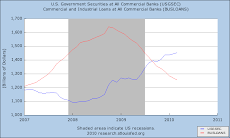


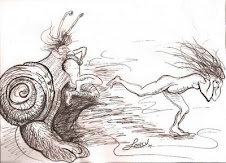
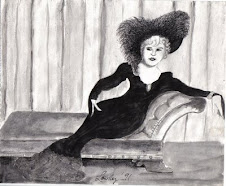

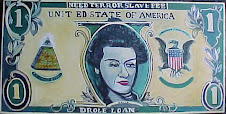
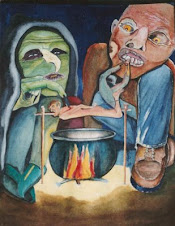

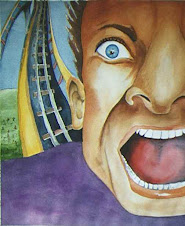
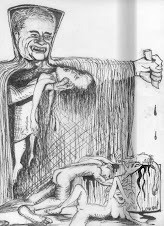

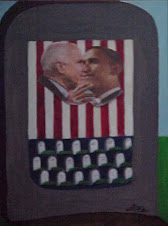
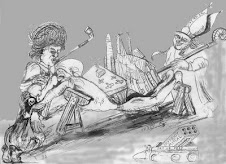
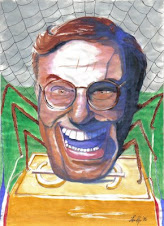
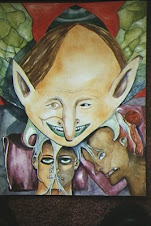

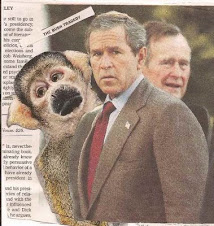
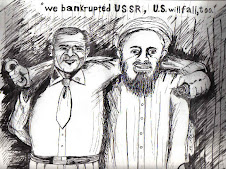

No comments:
Post a Comment